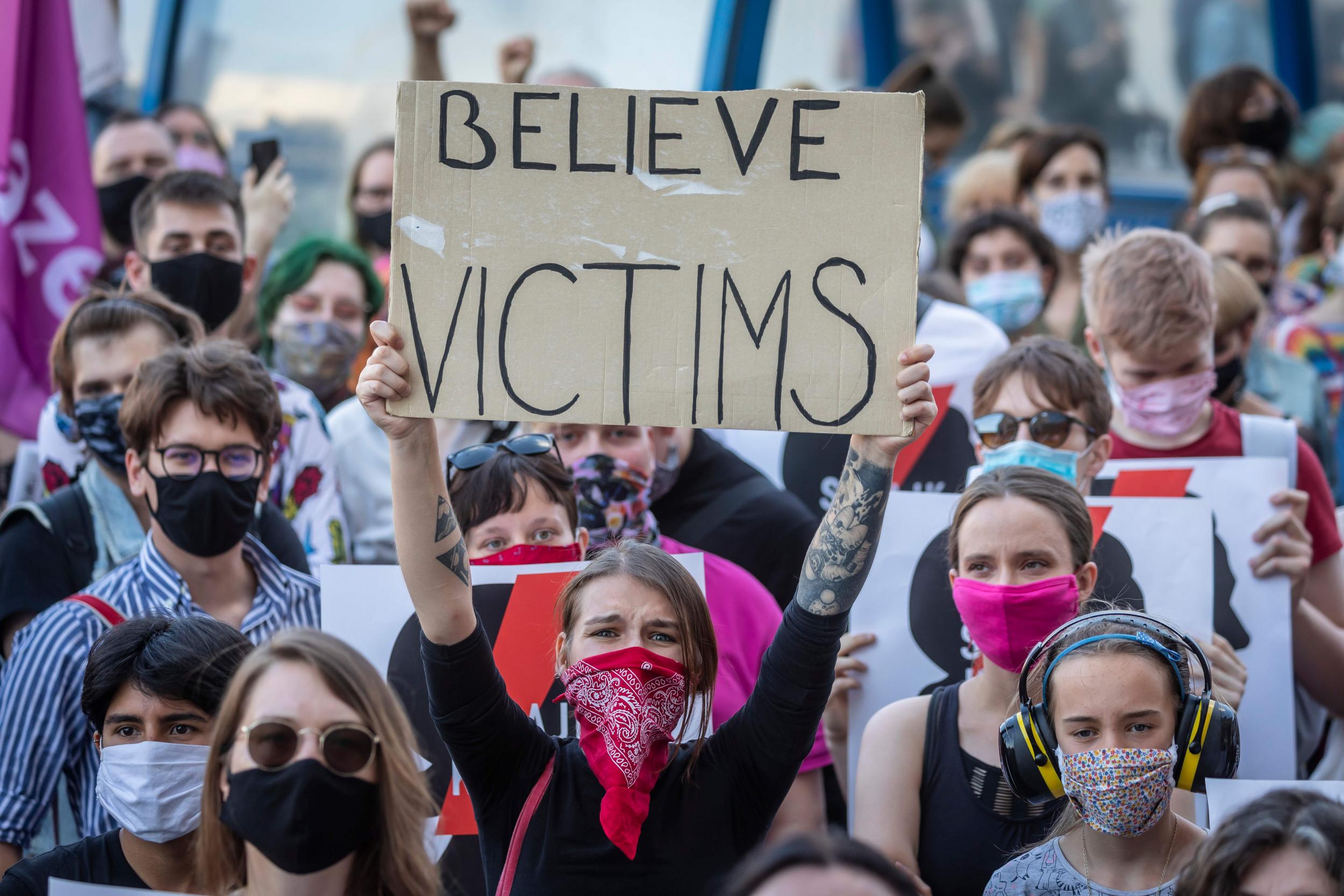Protests erupt in Poland over plans to leave pan-European convention combatting violence against women
Demonstrators shouted ‘fight against the virus, not against women’

Your support helps us to tell the story
From reproductive rights to climate change to Big Tech, The Independent is on the ground when the story is developing. Whether it's investigating the financials of Elon Musk's pro-Trump PAC or producing our latest documentary, 'The A Word', which shines a light on the American women fighting for reproductive rights, we know how important it is to parse out the facts from the messaging.
At such a critical moment in US history, we need reporters on the ground. Your donation allows us to keep sending journalists to speak to both sides of the story.
The Independent is trusted by Americans across the entire political spectrum. And unlike many other quality news outlets, we choose not to lock Americans out of our reporting and analysis with paywalls. We believe quality journalism should be available to everyone, paid for by those who can afford it.
Your support makes all the difference.Tens of thousands of people descended on Warsaw and other Polish cities to protest against government plans to withdraw from a pan-European convention tackling violence against women.
The Istanbul Convention is the most comprehensive legal framework that exists to tackle violence against women and girls, covering domestic violence, rape, sexual assault, female genital mutilation, so-called honour-based violence and forced marriage.
Poland ratified the convention back in 2015 before the ultra-conservative Law and Justice Party were in power.
Demonstrators shouted “fight against the virus, not against women” while walking through Warsaw on Friday afternoon – with several hundred assembling outside the headquarters of an association pushing back against the convention.
The current Polish government argues that the convention, which was drawn up by the Council of Europe, a human rights organisation made up of 47 member states, contravenes Poland’s Roman Catholic family values.
Britain signed the convention in 2012, making it one of the last EU members to do so – along with Bulgaria, Hungary and a handful of others – and the UK government has been fiercely condemned for failing to ratify it in the eight years since. The lack of ratification means that the UK is not legally bound to follow the convention.
Andrzej Duda, the Polish president who is backed by the Law and Justice Party, narrowly beat the liberal Warsaw mayor, Rafal Trzaskowski, to win a second five-year term in a fierce election earlier in the month.
Campaigners have raised serious concerns that Mr Duda’s win could reinvigorate existing attacks on women’s rights and LGBT+ rights in Poland.
Mr Duda promised to outlaw same-sex marriage and LGBT+ adoption rights during his recent election campaign.
The ruling Law and Justice Party is founded on a socially conservative, Catholic ideology and has waged a war on female reproductive rights.
Poland already has one of the most restrictive abortion laws in Europe: having a pregnancy terminated is illegal except in cases of rape or incest or when a female’s life is at risk or if there is a severe foetal abnormality.
After a draft bill was roundly condemned last year, the Polish government was forced to retreat on plans to redefine the definition of domestic violence so it would only apply when spouses are beaten more than once.
Similar laws apply in Russia, where the parliament implemented legislative amendments in February 2017 that decriminalised domestic violence – marking a grave setback that decreased punishments for perpetrators and put victims at greater risk.
Join our commenting forum
Join thought-provoking conversations, follow other Independent readers and see their replies
Comments